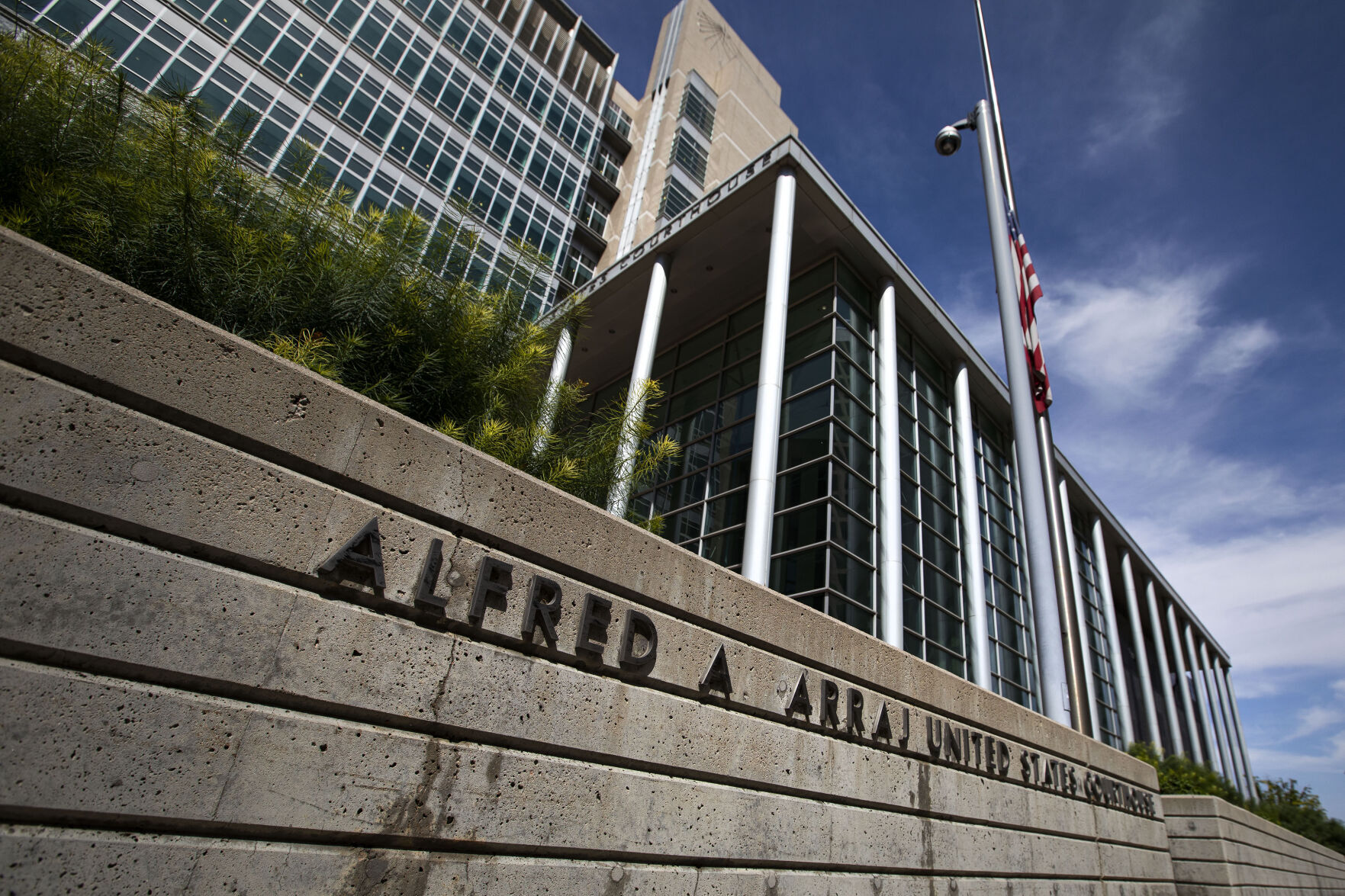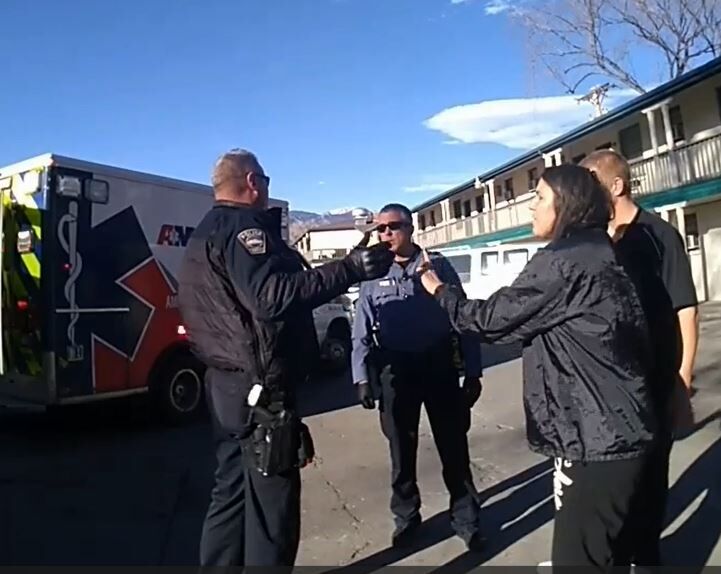Judge sanctions woman suing Colorado Springs police, finds she withheld evidence

A federal judge last week authorized financial sanctions against a woman and her lawyers who are suing Colorado Springs police for a constitutional violation, finding she disobeyed court orders and failed to hand over evidence to the defense.
Sasha Cronick is pursuing claims of unreasonable search and seizure and false arrest against the officers who handcuffed her minutes after she helped resuscitate a man who had stopped breathing from a drug overdose. Last year, U.S. District Court Senior Judge Christine M. Arguello found a jury will determine whether the officers arrested Cronick without justification.
However, the officers argued Cronick deliberately withheld evidence relevant to the case – including videos and comments on her YouTube channel that showed an inclination to provoke encounters with authorities, plus an online conversation specifically about the events surrounding her arrest.
In a Jan. 4 order, Arguello agreed Cronick had disobeyed court orders to hand over information to the defendants.
“Ms. Cronick’s inexplicably nonsensical reasons strongly suggest purposeful obstruction,” she wrote. “Ms. Cronick’s inconsistent reasoning exemplifies the types of evasive maneuvers taken precisely to avoid disclosure.”
On Dec. 12, 2018, Cronick heard shouts for help at a Colorado Springs motel where she was staying. A man was lying unconscious outside of a guest room, apparently due to a drug overdose. Cronick called 911 and talked with a dispatcher while simultaneously recording video. The footage showed Cronick instructing another woman how to perform chest compressions and mouth-to-mouth resuscitation. Their efforts resulted in the man beginning to breathe again moments before first responders arrived.
Cronick remained nearby, recording on her phone and intermittently answering questions about what happened. Officer Christopher Pryor then walked up and learned Cronick was the one who called 911. He asked for her name and room number, but she responded she was “not answering questions like that,” then mentioned “police harassment.”
“Why don’t you leave the immediate area,” Pryor said, touching her out of view of his body-worn camera.
“Get your f—–g hands off me. Don’t f—–g touch me,” Cronick screamed.
“Lighten up, lady,” Pryor said. “I asked you to leave the area.”
Other officers gathered around Pryor. Cronick began demanding their names and, in response, Pryor and Officer Robert McCafferty placed her in handcuffs. Pryor told Cronick she had committed obstruction and disputed that he grabbed her.
“I’m gonna sue the s–t out of you,” Cronick told the supervising sergeant.
In June, Arguello dismissed Cronick’s claims of excessive force and malicious prosecution, but green-lit for a jury trial Cronick’s allegations that the officers lacked probable cause of a crime to arrest her. The defendants are appealing Arguello’s decision.

Meanwhile, the officers pursued another issue: They had not received various videos and Internet posts from Cronick in which she threatened to sue authorities for money. Those pieces of evidence allegedly showed Cronick’s “habit and motive to act obstinately and harass others.” In addition, Cronick deleted an online conversation about what happened the day of her arrest.
“There is no dispute that Cronick actually destroyed the videos and online communications,” wrote Ryan D. Doherty with the Colorado Springs City Attorney’s Office. “Cronick’s failure to comply with her discovery obligations, shifting tales of control and monetary gain, and ignorance of this Court’s orders has made a mockery (of) the judicial process.”
David Lane, Cronick’s lawyer, countered that Cronick’s chaotic life precluded her from organizing all the relevant files and, in any event, the defendants already had videos from the scene that depicted the entirety of the issue jurors would decide.
“If counsel is seeking to produce evidence that Ms. Cronick is not fond of police officers, that fact will be stipulated to and is no secret,” Lane added.
In October, U.S. Magistrate Judge Maritza Dominguez Braswell recommended imposing financial sanctions on Cronick and the plaintiff’s attorneys. She pointed to her own order from April in which she expressed “concerns over obstruction” and was now “seriously troubled” by Cronick ignoring the directive to hand over the evidence.
The withheld videos and posts are “particularly relevant now that Judge Arguello has expressly noted that Plaintiff’s conduct on the day in question is in dispute,” Dominguez Braswell wrote. “That is, in deciding the remaining false arrest claim, a jury will consider whether Plaintiff was being obstructive before she was arrested. Videos of the incident, videos of other interactions with the police, and comments and other information concerning Plaintiff’s engagement with police (as well as whether Plaintiff profits from such encounters in any way), could inform a jury’s decision.”
Arguello, in reviewing Dominguez Braswell’s recommendation, agreed financial sanctions were warranted to pay the defendants’ costs of pursuing the evidence. However, she disagreed with Dominguez Braswell’s other proposed penalty: prohibiting Cronick from disputing that she deleted evidence, that she engages in “behavior that is disruptive to police business,” and that she “profits” from recording her behavior.
Arguello acknowledged Cronick willfully violated a court order, but she declined to impose firm rules for the trial until hearing the evidence. That way, Arguello can “narrowly tailor” the sanction once it becomes clear how Cronick’s conduct harmed the defense.
The case is Cronick v. Pryor et al.












